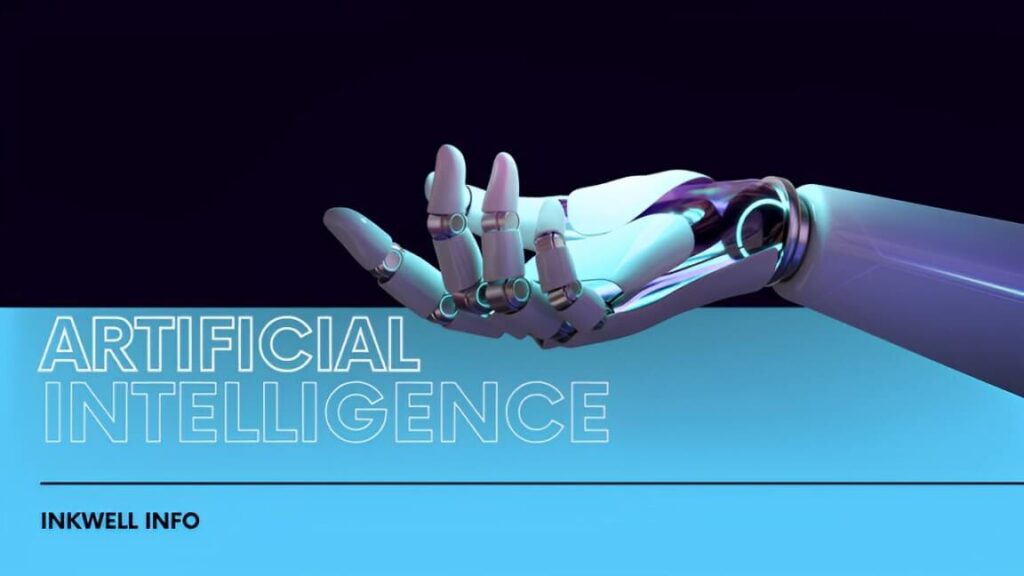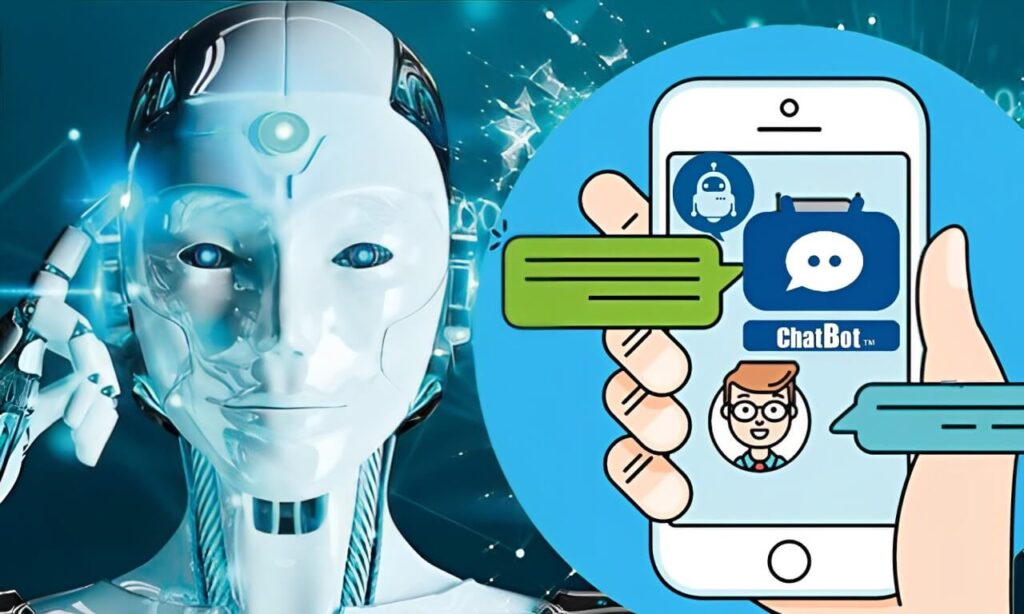Artificial intelligence is almost borderless and has evolved into spearheading change in almost every sector, including health, commerce, and entertainment. Contemporary application of artificial intelligence becomes wider and includes almost all areas of society, making an artificial intelligence tool as necessary as a knife or spoon which can help to solve a problem, to facilitate routine works, and change man’s relationship with an application. The greatest joy in the use of AI has been the creation of AI chatbots that are now a revolution in communication, customer service, and personal support. All of these devices are artificial intelligence and their role is to mimic human voice in order to fulfill intelligent and optimum solutions for everyday tasks. In this article the reader will get to understand what AI entails, about AI chatbots and all the different forms of AI tools that are out there to help people in their everyday lives.
Why Artificial Intelligence Matters?
Artificial Intelligence is copying that of human beings with the aid of a machine which is capable of working like the human brain.. Having talked about what AI can do with a lot of input information and then churning out more information, discovering patterns in it and solving or learning with time without coding for each task anew. These may consist of one equation, linear program, a decision tree or even artificial neural networks that imitate the working of the human brain.
AI can be classified into two categories:
- Narrow AI: Artificial Intelligence means, imitating human intelligence by developing a machine which can act, react and learn as humans do. AI can handle a lot of information input and then use this information to make more information, discover relationships, solve it or learn and adapt with the course of time without having to code it for each particular task. These may include a single equation, a linear program, a decision tree and the much complex artificial neural networks which emulate the flow of the human brain..
- General AI: As suggested this kind of AI is assumed to be able to do any kind of work that the human brain is able to do. This is still more or a theory concept but it is in fact the future of AI.
AI Chatbots: The Future of Communication
Perhaps, the most significant of the introductions is AI chatbots. These AI tools are text- or voice-based, which means that, when communicating with a user, they behave like a real person. They are applied widely in customer relations, personnel care, and many other cases where the work is to involve interaction.
The use of AI chatbots has erratically become common in the recent past. First-generation chatbots were fairly primitive as they afforded flexibility in terms of script that the bot could respond to an input based on a set of keywords. Today’s AI chatbot on the other hand use NLP and machine learning algorithms which can comprehend context, learn and start to have convoluted dialogues. This makes them far more adaptable than other models and capable than their previous generation counterparts.

Use Cases for AI Chatbots
- Customer Service: AI chatbots have become popular in organizations to provide customer service answers or address customer concern or even request. They are capable of answering frequently asked questions, guide the users to the appropriate department and or solve some routine complaints. Today we see that most websites and applications include AI-based chatbots as primary contact points with customers.
- Personal Assistants: AI chatbots such as Apple’s Siri, Google Assistant and Amazon Alexa have become almost normal means for organizing people’s lives including getting a reminder at a certain time, controlling smart home systems and answering a question. These assistants are part of people’s daily lives and provide them with useful support in organization of their work.
- Mental Health Support: AI chatbots have also been created for counseling with and alleviation of emotions and mental health issues. Such therapeutic applications includes Woebot which is an AI engaged in conversational therapy and gives individual tips on how to handle stress, anxiety among some other real issues.
- Education: AI enabled chatbots are revolutionizing education by specifically offering tutor-like support to students. With these chatbots, they are in a position to answer questions from the students, assist them to complete their homework and even challenge the students with questions about events or specific discipline, therefore enhancing students’ learning process.
AI Tools for Everyday Tasks
Apart from chatbots, AI is integrated into more and more tools aimed at enhancing efficiency as well as increasing the effectiveness of tasks performed. From organizing the timetables to providing the replacements for the boring and repetitive work – these AI solutions got into the lives of people and are becoming the essential one. It might be useful to cast the spotlight on some of the most prominent tools with the usage of artificial intelligence technology in performing routine tasks.
1. AI-Powered Personal Assistants
Personal assistant devices, however, go back a long way, but they have been enhanced with the help of artificial intelligence. Presently, the broad range of tasks that can be performed by personal AI, include email management to calendar control. For example:
- Google Assistant: This conversational AI can assist with basic tasks such as scheduling reminders, texting, and playing music and becomes smarter with use because it picks up on certain preferences you have.
- Siri: Other RIVs include Apple’s Siri, a smart personal assistant that works hand in hand with Apple gadgets to plan, navigate and perform tasks.
- Microsoft Cortana: Though not as popular as Google Assistant or Apple’s Siri, Cortana connects to or works with Microsoft Office providing facilities to deal with emails and meetings, or to give reminders.
2. Smart Home Devices
Computing technology and more specifically Artificial Intelligence is making homes more intelligent for the inhabitants. With the advent of the internet connected devices also known as the Internet of Things (IoT), artificial intelligence control based home devices are becoming increasingly popular. These devices incorporate techniques in AI in order to accomplish the work on its own, reduce energy consumption, and increase the level of protection. Some popular AI-powered smart home devices include:
- Smart Thermostats (e.g., Nest): They pick up your heat and cool patterns overtime, change the temperature depending on the time of the day you set and IT EVEN CONServes energy by lowering the heat or cool when you are not around.
- Smart Speakers (e.g., Amazon Echo, Google Home): These devices depend on Artificial intelligence to play music and/or to operate other smart devices within the household.
- Smart Security Cameras (e.g., Ring, Nest Cam): Smart cameras can look for faces, see new motions, and may even tell you about something strange going on at your house.
3. AI-Powered Productivity Tools
AI is also enhancing how people work by being applicable in a broad sense including document editing to project management. Some AI-powered tools that are transforming productivity include:
- Grammarly: This companion worked on both correcting grammar, punctuations and style and offering recommendations to make writing easier.
- Trello with Butler: Trello is a fairly renowned project management tool that has taken advantage of Artificial Intelligence in its butler function. It freely moves cards, assigns due dates, and sends reminders according to the user interaction.
- Notion: Notion is Instrumental in the following ways of applying Artificial Intelligence to generate content, rapidly summarizing a lengthy article, or transforming meeting minutes into a list of actions and deliverables, making it powerful for handling individual and professional responsibilities.
4. AI in Finance
AI tools are also being widely used when it comes to managing one’s personal finance. Some examples of use are the ability for AI internet apps to monitor spending tendencies, make recommendations for balance and other aspects of manners, and also do things like act as a portfolio for investments. Popular AI-driven finance tools include:
- Mint: This app utilizes artificial intelligence algorithms to capture all the expenses, classify charges and analyze your spending behavior to support controlling money consumption..
- Robo-Advisors (e.g., Betterment, Wealthfront): Such AI-endowed investment platforms assist users in dealing with their investments through acquisition and the creation of efficient investment in light of the risk profile and investment goals.
The Future of AI in Everyday Life
AI is already part of our daily routines and that trend is certain to continue in the future. As machine learning, deep learning, and other AI methodologies progress and improve, the technologies that are informed, created, and cultivated by AI will become smarter and more perceptive of our requests before we make them ourselves. Machine intelligence is expected to advance in industries, enhance the efficiency of the health care sector, revolutionize the education system and increase individual efficiency.
Consequently, there is a trend in the development of that will be more conversational and will be capable of solving even more complicated tasks to include appointment setting to real time translation at the least. As technology advances the boundaries between interpersonal, human and artificial communication will be progressively dissolved and new opportunities for communication in both personal and business life will be created.
Conclusion
Therefore, even at this stage of development, it is possible to state that AI, and especially, are already changing our lives drastically, influencing how people use technology, communicate with stores, and organizations, and organize their work. With the use of the AI application, companies have been able to simplify various activities that we conduct in our daily lives, to enhance home automation and financial management among others. Indeed, with the development of artificial intelligence going on unabated, only could it be expected that these tools will become even smarter, and even more deeply integrated, into our lives – to assist in managing new and more intricate challenges in this world. From getting a response for basic questions in a mode of a chatbot to managing your daily schedule through a smart assistant, AI is here and is making people’s lives better.




Pingback: Os Expdoa Amarchtype Top Tips for Optimizing Your Experience - INKWEllINFO.IN